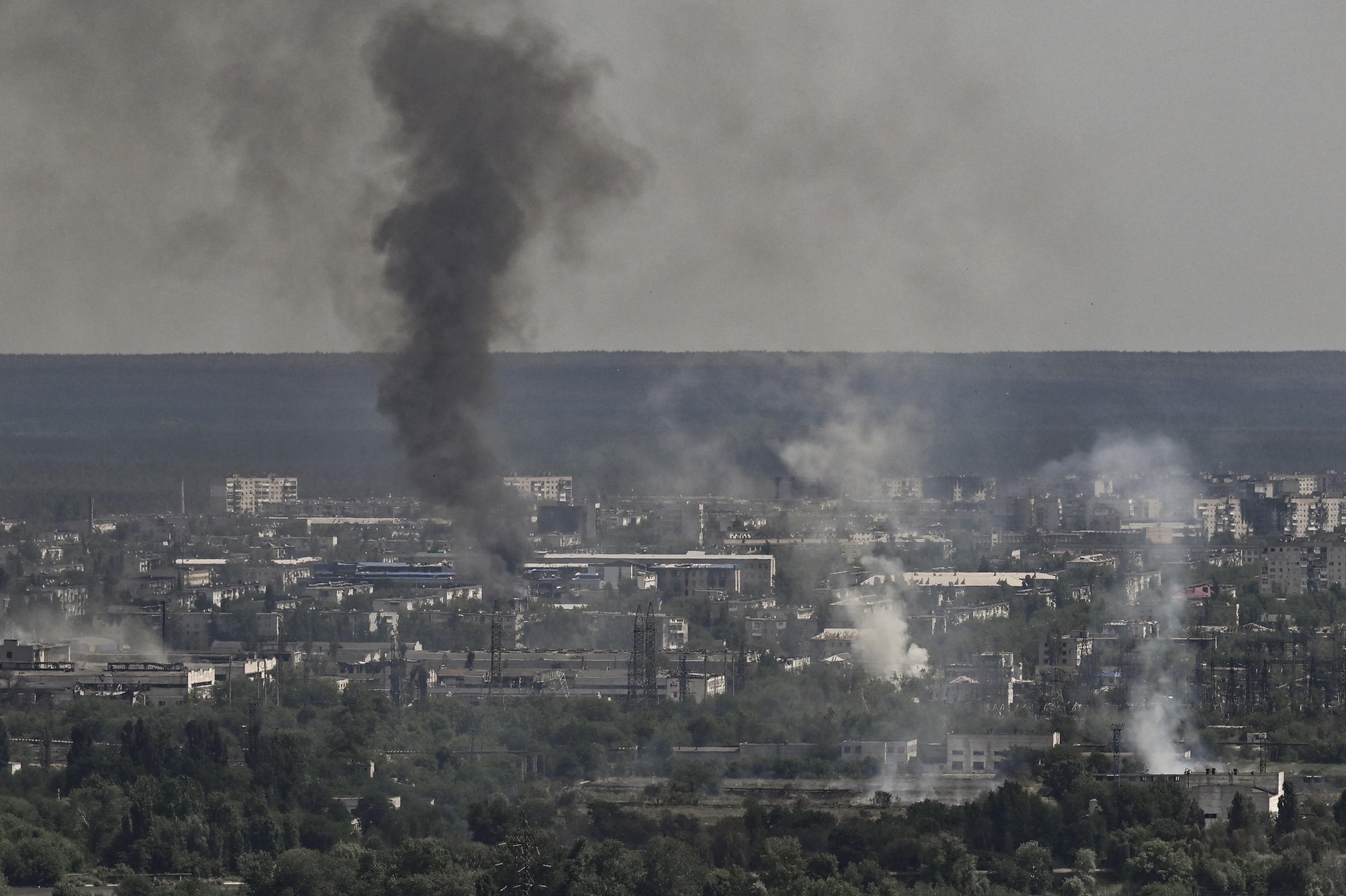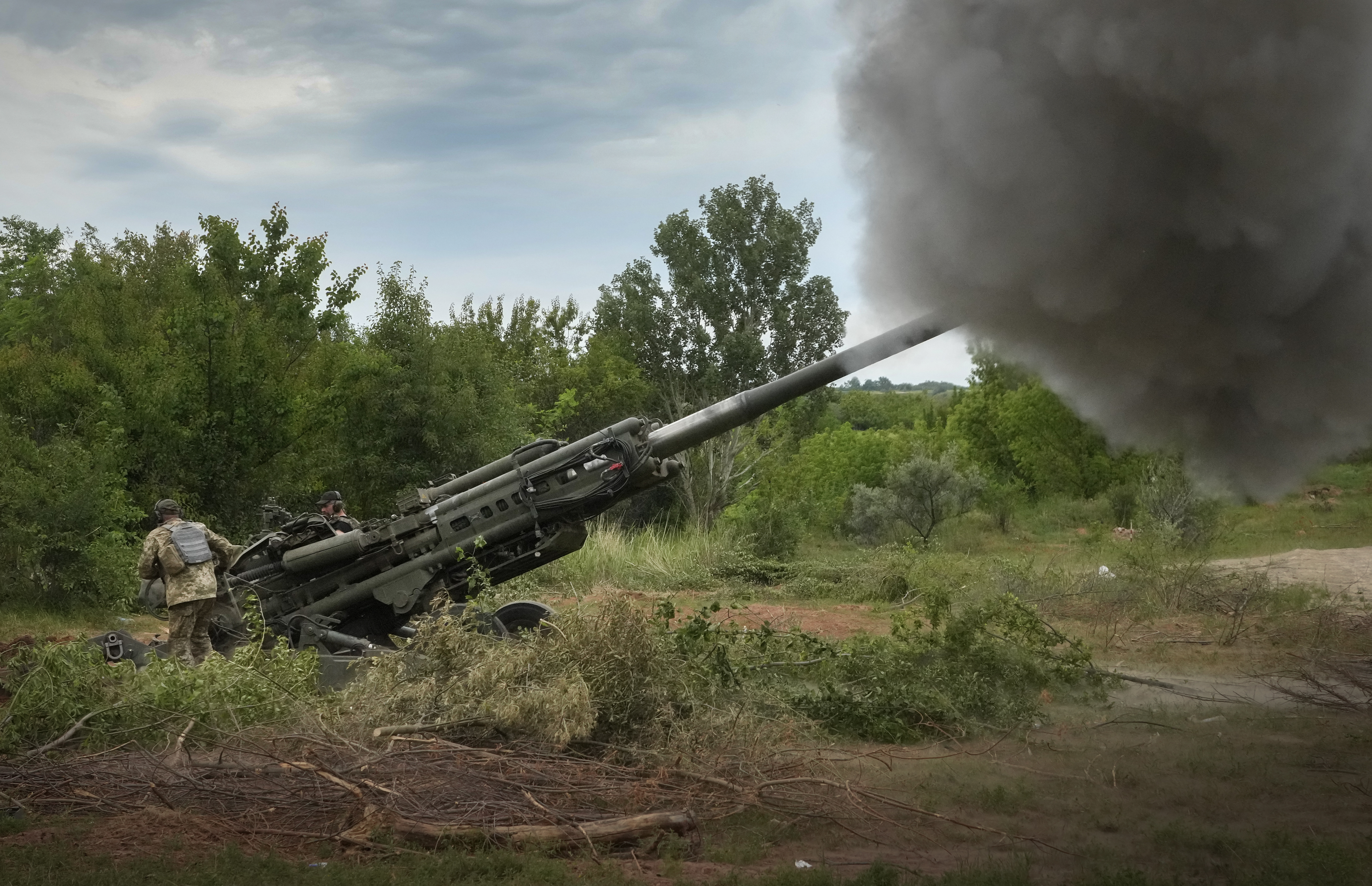
Russia has said its forces seized a village near Ukraine’s industrial city of Severodonetsk, a prime target in Moscow’s campaign to control the country’s east.
The defence ministry said on Sunday it had won Metyolkine, a settlement of fewer than 800 people before the war began. Russian state news agency TASS reported that many Ukrainian fighters had surrendered there.
Ukraine’s military said Russia had “partial success” in the area, which is about 6km (4 miles) southeast of Severodonetsk.
After failing to take the capital Kyiv early in the war, Russian forces have focused on trying to take complete control of Luhansk and Donetsk provinces, which together comprise the Donbas region in eastern Ukraine. Some parts of the Donbas were already held by Russian-backed separatists before the February 24 invasion.

Moscow said on Sunday its offensive to win Severdonetsk itself was proceeding successfully.
Luhansk Governor Serhiy Haidai told Ukrainian TV that fighting made evacuations from the city impossible, but that “all Russian claims that they control the town are a lie. They control the main part of the town, but not the whole town”.
Among the communities around Severodonestk, Haidai told Ukraine TV that a Russian attack on Toshkivka, 35km (22 miles) south, “had a degree of success”.
Latest Defence Intelligence update on the situation in Ukraine – 19 June 2022
Find out more about the UK government's response: https://t.co/79ub72nmeH
🇺🇦 #StandWithUkraine 🇺🇦 pic.twitter.com/1Wi6bfCmmh
— Ministry of Defence 🇬🇧 (@DefenceHQ) June 19, 2022
The United Kingdom’s Ministry of Defence on Sunday claimed that both Russia and Ukraine have continued heavy bombardment around Severodonestk “with little change to the front line”.
The UK military assessment said morale for Ukrainian and Russian combat units in the Donbas was likely “variable”.
“Many Russian personnel of all ranks also likely remain confused about the war’s objectives. Morale problems in the Russian force are likely so significant that they are limiting Russia’s ability to achieve operational objectives,” the ministry tweeted.
Russia continues bombardment
In Severodonetsk’s twin city of Lysychansk, residential buildings and private houses had been destroyed by Russian shelling, Haidai said. “People are dying on the streets and in bomb shelters,” he added.
He later said 19 people had been evacuated on Sunday. “We are managing to bring in humanitarian aid and evacuate people as best we can,” Haidai said.
In Ukraine’s second-largest city Kharkiv, northwest of Luhansk, Russia’s defence ministry said its Iskander missiles had destroyed weaponry recently supplied by Western countries.

Russian forces were trying to approach Kharkiv, which experienced intense shelling earlier in the war, and turn it into a “frontline city”, a Ukrainian interior ministry official said.
In southern Ukraine, Western weaponry had helped Ukrainian forces advance 10 km (6 miles) towards Russian-occupied Melitopol, its mayor said in a video posted on Telegram from outside the city.
NATO Secretary General Jens Stoltenberg urged Western countries on Sunday they must be ready to offer long-term military, political and economic support to Kyiv during a grinding war which could last years.
“We must not weaken in our support of Ukraine, even if the costs are high — not only in terms of military support but also because of rising energy and food prices,” Stoltenberg told German daily newspaper Bild.
Germany to phase out Russia gas
Meanwhile, Germany’s economy minister said the country will turn to coal and limit the use of gas for electricity production amid concerns about possible shortages caused by a reduction in gas supplies from Russia.
Germany has been trying to fill its gas storage facilities to capacity ahead of the cold winter months.
Economy Minister Robert Habeck said that Germany will try to compensate for the move by increasing the burning of coal, a more polluting fossil fuel. “That’s bitter, but it’s simply necessary in this situation to lower gas usage,” he said.
“It’s obvious that [Russian President] Putin’s strategy is to unsettle us by driving up the price and dividing us,” Habeck said. “We won’t let that happen.”
Russian gas giant Gazprom has said that exports to countries that did not belong to the former Soviet Union were down 28.9 percent between January 1 and June 15 compared with the same period last year.
Separately on Sunday, Italy’s state-owned energy exchange disclosed that Gazprom said it will only partially meet a request by Italy’s Eni for gas supplies on Monday, signalling a sixth consecutive daily shortfall.
The head of Italian energy giant ENI said on Saturday that with additional gas purchased from other sources, Italy should make it through its next winter, but he warned Italians that “restrictions” affecting gas use might be necessary.
Kremlin Spokesperson Dmitry Peskov said on Thursday that reductions in supply were not premeditated and were related to maintenance issues. Italian Prime Minister Mario Draghi has dismissed this explanation as a “lie”.







